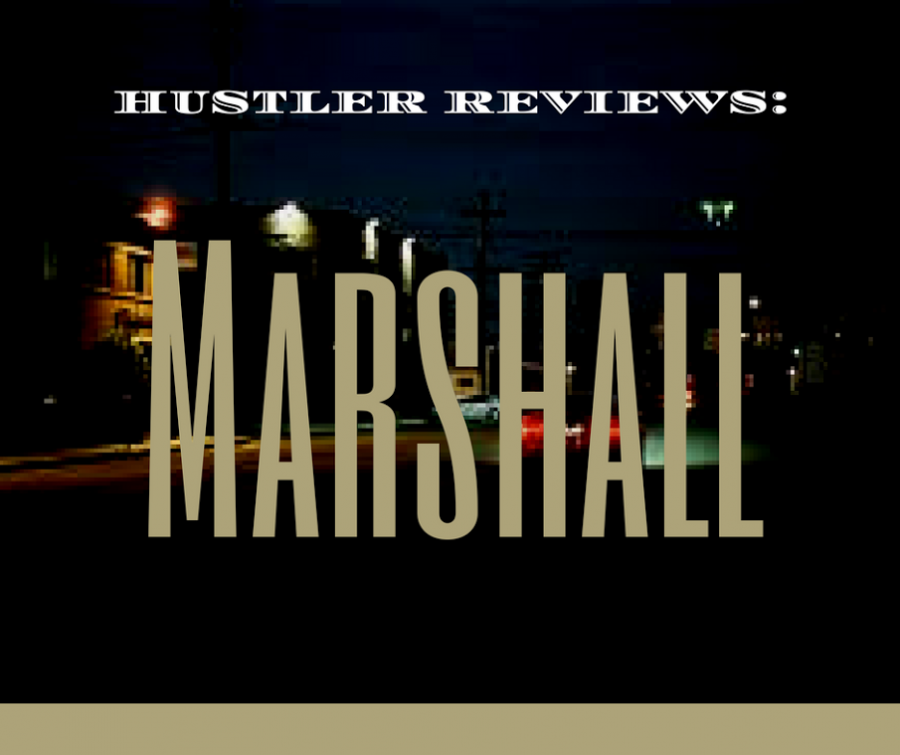Before he became the nation’s first African-American Supreme Court Justice or won Brown v. Board of Education, Thurgood Marshall earned his stripes as a fiery, quick-witted attorney for the National Association for the Advancement of Colored People (NAACP). Narrow in its focus yet faithful to the era’s struggle for racial equality, Reginald Hudlin’s Marshall spotlights the ardent Civil Rights leader with depth and bravado.
In 1940, Eleanor Strubing accused her African-American chauffeur, Joseph Spell, of rape and attempted murder. The NAACP called Thurgood Marshall in to defend Spell, whose case is the focal point of Marshall. Hudlin recounts the investigation and courtroom drama steadily, fascinating the viewers with the passionate and indomitable attorney, played by Chadwick Boseman. The viewer is then introduced to the central conflict, The State of Connecticut v. Joseph Spell, which is emblematic of the nation’s raging race war. The case also has personal implications for Marshall and his fellow attorney, Sam Friedman (Josh Gad), as Marshall tells a story that touts depth both culturally and personally.
Boseman is phenomenal as the legendary attorney, boasting unwavering self-confidence even in the face of racially-charged rhetoric and physical violence. In Marshall, the racial tension is as evident in the Deep South as it is in southern Connecticut, where the majority of the events in the movie take place. Marshall is not alone in this struggle, however, as Friedman’s similar persecution as an Orthodox Jew adds to the pressure facing the protagonists. Kate Hudson plays the ambivalent socialite Eleanor Strubing. Hudson draws on years of experience in romance and drama films, effortlessly pandering for the jury’s sympathy in her role. Boseman’s machismo and Gad’s steadiness anchor a story that is both rousing and ennobling, while Hudson expertly personifies the prejudiced institutions embattling the heroes.
Between the attorney’s fearlessness in the face of discrimination and the surge of similar controversies in today’s society, Hudlin could have easily pandered to his audience’s inherent decency with Marshall. However, he avoids spewing sentimentalism with his dialogue and propping up trite conflict. Marshall is remarkable in telling a profound story with originality and discipline.
While Hudlin is careful to avoid melodrama, Marshall’s tone is actually underserved. As the lion-hearted attorney passes vitriolic protesters outside courthouses, he proceeds unaffected by the hatred around him. His confidence is accentuated by soft jazz. This scene readily demonstrates Marshall’s courage amidst such discrimination. However, the audience never feels the weight of this opposition. Hudlin never confronts us with the oppression of African Americans, which underpins Marshall’s resilience and gives it weight. Instead, we’re brought alongside a steely-eyed demigod and hardly shown why we should care about his invincibility. Employing an underserved tone in a setting where racial equality is excusable to some extent, Hudlin deserves praise for not exploiting the emotions of this story to sell tickets.
Overall, I really enjoyed Marshall. It tells the story of the Civil Rights leader responsible for desegregating America’s schools and giving African Americans a voice in our nation’s judicial system. This movie highlights the determination of one man in his defense of not just one chauffeur, but in fact millions of Americans facing hatred and subjugation. Marshall is not a sentimentalist guilt-trip vying for moral superiority and rave reviews, yet could still stand to employ a heavier tone. Thoughtful in his approach and sublime in his directorship, Reginald Hudlin has given us a stirring 7/10 in Marshall.

